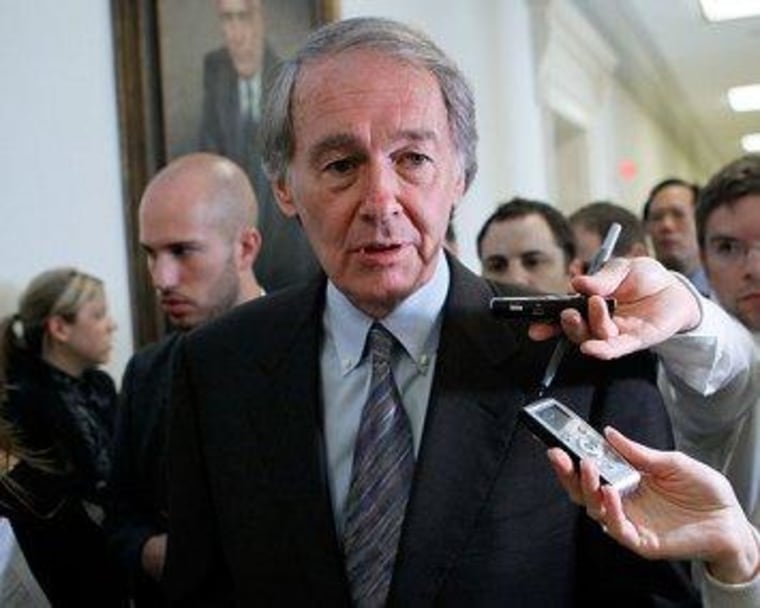As Massachusetts' Senate special election approaches, Republicans are becoming increasingly aggressive in their attacks on the Democratic frontrunner, Rep. Ed Markey (D). But yesterday's criticisms of the congressman were a little more interesting than most.
The National Republican Senate Committee accused Markey yesterday of claiming he "invented the satellite dish, low-cost mobile phone calls, and the ability for cable companies to provide long distance service." The NRSC added, "Perhaps Markey can use the technology he invented to call, tweet, or message his friend Al Gore, inventor of the internet."
Conservative humor is just so droll, isn't it?
The problem, of course, is that the National Republican Senate Committee is lying. For one thing, Al Gore never claimed to be the inventor of the Internet. It just never happened -- Republicans distorted a Gore comment, the media uncritically ran with it, and a ridiculous smear quickly entered the public consciousness.
For another, Markey didn't say he "invented the satellite dish." Matt Yglesias sets the record straight.
What is true is that, as Markey said, he was a leader in pushing the provision of the 1992 Cable Act that made it possible for commercially viable direct-broadcast satellite companies (Direct TV, etc.) to compete with cable companies. The specific issue is that cable companies had vertically integrated with cable stations. The same firm might own a cable infrastructure company and also own HBO. Then the integrated cable firms would agree to license their channel to other cable companies in other geographical areas, but not to competitors. So the technology existed to do satellite TV, but the content wasn't there.
Markey's provision forced cable companies to license content to satellite companies on non-prejudicial terms, thus injecting some much-needed competition into the market.
If the NRSC wants to argue over the merits of the 20-year-old legislation, fine, but why make up garbage and push it to the public, assuming we wouldn't know the difference?
The same Republican attack added that Markey "tells us that he's actually the hero we have to think for Google, Hulu, YouTube, Facebook and Twitter." But the Massachusetts Democrat didn't say that, either.
[Markey said] he took a leading role in the 1996 Telecommunications Act and is arguing, plausibly, that the act led to a surge of business investment in digital technology. But don't take my word for it, read this policy briefing from the Cato Institute concluding that "a sober assessment of the major economic provisions of the 1996 Telecommunications Act reveals that the legislation scores at the top of its class on standardized tests." ... It was basically a triumph of bipartisan legislating and Markey played a key role in it. He also fought for a provision forcing the development of Cable CARD technology that paved the way for Tivo.
So, the National Republican Senate Committee lied -- twice -- and got caught. The next question is why the party committee expected to get away with it.
And the answer, I suspect, is right there in the press release. Republicans took a Gore comment, distorted it, handed it to media figures who wouldn't look too closely at the details, and before long, a bogus smear was something most of the country falsely considered to be true.
This helped create a template for post-truth politics that continues to get worse. The NRSC very likely assumes that neither voters nor reporters will look too closely at the details, and if they can push their falsehoods quickly and effectively, the lie will take root before the facts even have a chance.
